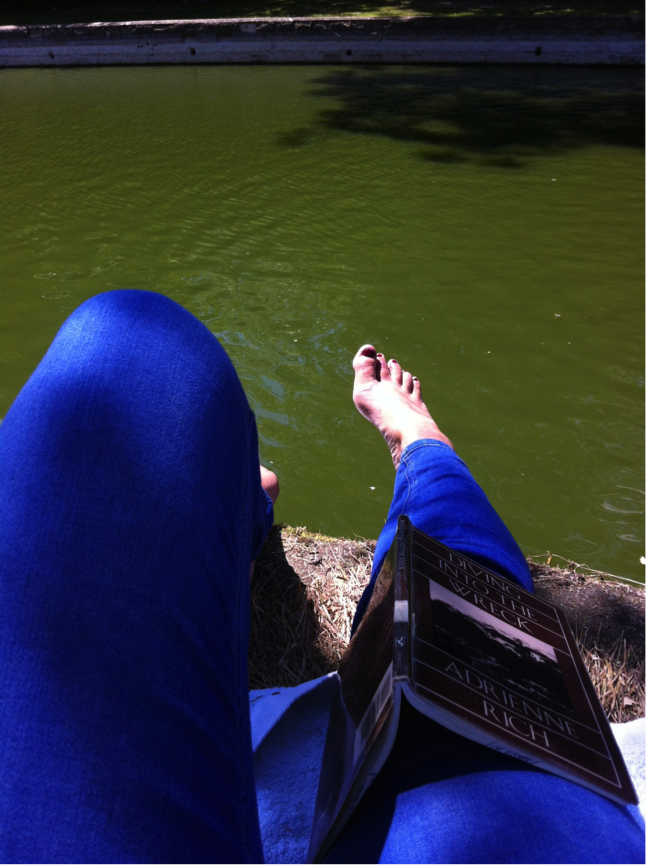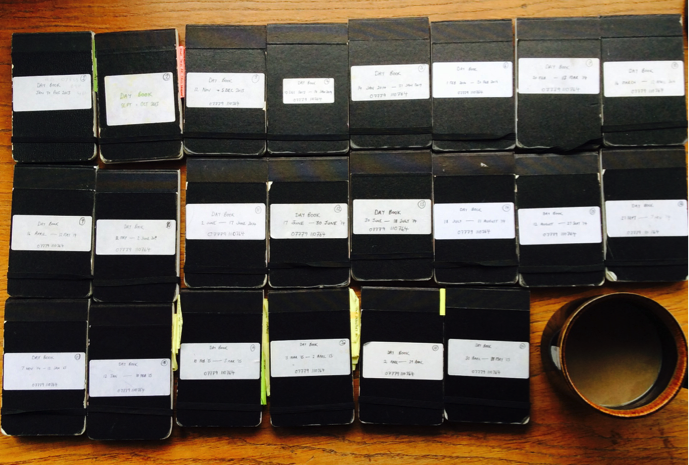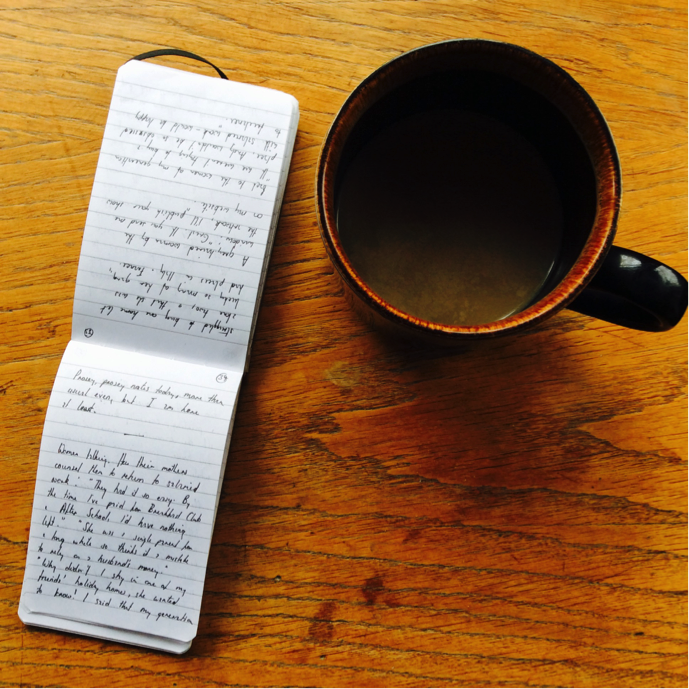
 I loafe and invite my soul, I lean and loafe at my ease observing [1]
I loafe and invite my soul, I lean and loafe at my ease observing [1]
It is other people – anonymous figures glimpsed… – who…reveal our true selves through the interest, the anger or the shame they send rippling through us. [2]
 Woman to a man in the Grange Gardens: ‘Oh yes, it’s a beautiful town of course, but I shouldn’t want to live here. Too Stepford Wifey.’
Woman to a man in the Grange Gardens: ‘Oh yes, it’s a beautiful town of course, but I shouldn’t want to live here. Too Stepford Wifey.’
* * *
Two mothers, each jiggling a fretful baby on their hip: ‘I want the whole lot done. Loft room, kitchen extension. So it will be around seventy, eighty grand. But when? If I do it this year it’s ruining her last summer…’
She means I realise the baby and this one summer she will spend with her mother before working life resumes and nursery life begins.
* * *
Men with shared childhoods who meet rarely are catching up. Talk mainly of homes, houses.
One is divorced and describing his financial diminishments: ‘I’m going towards micro-living I’ve decided: One room, bare essentials, kimono and slippers…’
At this I forget my usual dumbshow of not listening and look across; smile, look down, look up. He smiles back, head tilted. Micro-courtship.
* * *
‘I’d love to visit China. Or India. Somewhere like that. Because I haven’t been anywhere. But I’d just get arrested.’
A woman in her thirties, girl grown old, with elderly parents, one of whom has just returned laden with cake. Their treat. This sad-to-me spectacle of middle-aged children and the tired, old song of themselves sung to parents who still pay; reflexes of a failed fledging.
* * *
Women talking. How their mothers counsel them to return to salaried work:
 ‘They had it so easy. Time I’ve paid Breakfast Club and After School, I’d have nothing left…And why didn’t I stay in one of my friends’ holiday homes this summer she wanted to know? I said my generation were struggling to buy one home let alone two, and that she was lucky so many of her gang have got places in Italy and France.’
‘They had it so easy. Time I’ve paid Breakfast Club and After School, I’d have nothing left…And why didn’t I stay in one of my friends’ holiday homes this summer she wanted to know? I said my generation were struggling to buy one home let alone two, and that she was lucky so many of her gang have got places in Italy and France.’
* * *
Mothers with very young babies. Mother on the left: ‘It’s either separation anxiety or teething or some bug…’
Mother on the right: ‘It’s like a military campaign keeping them awake and getting them to this afternoon music group, isn’t it? I spend hours trying to time it all right…’
* * *
Two women, late fifties, are discussing the dispersal of their parents’ estates:
‘But look! Here are all her accounts. Thirty thousand for my brother’s care bills and she said she couldn’t find a penny more but look! look! – 18k on her horses! The horses! And she told all her friends on Facebook that she was crippled by debt! But I don’t want to be thinking about all this.’
* * *
A man and woman, early fifties, catching up awkwardly after a decade’s separation.
‘So then’ he begins to recap ‘we last sat and talked before Thailand, after India…’
The woman cuts her lettuce on its tin plate, nods while chewing.
‘…so then I was back in London which felt so strange. It was just this narrative I couldn’t believe. After San Franciso, I lived on the Holy Isle, so coming back was challenging. And now I’m trying to place the story of me back into the narrative of London…we’re somehow attached to meaning…it’s like a really thick icing on the rich cake of existence…’
The woman murmurs assent. ‘Yes, that’s a beautiful way of putting it.’
Now. I sat in this same café a month ago talking quietly with a friend about the communal life of the Apostles. But we were different, weren’t we, talking in lower tones than this out of consideration for others? Or it may be that all talk, however whole-hearted, is ridiculous if overheard and written down. An experiment for another time, I decide, for balance: To have myself recorded, without my knowing, in conversation with my children, my friends. Have it handed back to me so I must confront my own little tune sung from street corners and coffee shop tables.
[1] Walt Whitman, Song of Myself, Leaves of Grass (final “Death-Bed” edition, 1891-2) (David McKay, 1892)
[2] Annie Ernaux, Exteriors (New York: Seven Stories Press, 1996)
